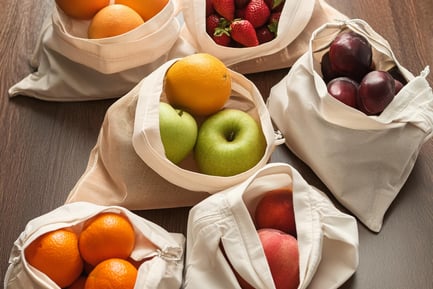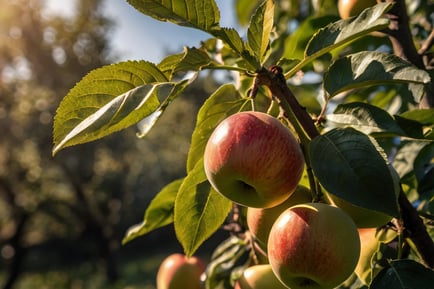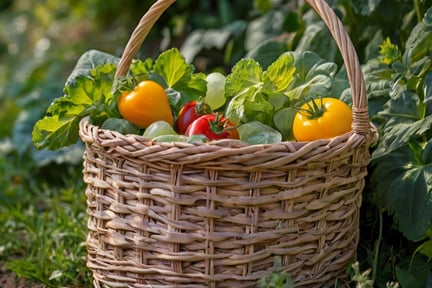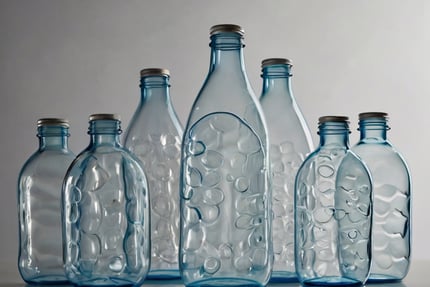
Six things to keep in mind to consume food greener
You are what you eat. In this article you will be informed about how a greener, healthier food choice can affect your well-being, can reduce waste and what to keep in mind when buying your necessary groceries with more sustainability.


1.Buy Only what you need
When you go to the supermarket, you should already know what you want to buy. This avoids spontaneous purchases. It is a good idea to write a list in advance.
You can use a handwritten note or do the whole thing digitally on your cell phone. There are also many apps that simplify the creation of such lists.
An example of this would be “Evernote”.
Fresh fruit and vegetables should only be bought in quantities that can be eaten. This prevents you from having to throw away food that has gone bad. Another tip is not to go shopping hungry.
With a hungry stomach, it can be easy to end up with some unnecessary food in your shopping trolley. What's more, these are usually not the healthiest.


2. Seasonal fruit and vegetables
Fruit and vegetables contain the most vitamins when they are harvested when ripe and eaten fresh. Considering this, you should keep an eye on the transportation routes. The longer they are, the longer it’s been, since they have been harvested. Everyone should therefore ask themselves whether tomatoes are really necessary in December or whether seasonal vegetables are an alternative.
Heated greenhouses are often used to provide fruit and vegetables at any time of year.
When choosing fruit and vegetables from the supermarket, you should not choose to produce that has had to be flown in from another continent, such as mangoes or papayas.
But even with common local fruits such as apples, there are varieties from Chile, right next to regional products. When it comes to pears, you can choose between pears from South Africa or Belgium.
If you get used to seasonal fruit and vegetables, you will realize how mixed and diverse our homeland can be. A tip for this is to shop at the weekly market, where regional fruit and vegetables are sold. Often at reasonable prices.


3. Food quality
You can taste quality. Higher quality food is fresher and has a higher degree of ripeness, which has a significant effect on the taste. If you have a garden with fruit or vegetables at home, you will know the difference in taste between home-grown and the supermarket product.
Save resources. Organic food is produced under more sustainable conditions, which has less impact on the environment. For example, the use of fertilizers or pesticides is minimized.
Health aspects. Food of a higher quality is less contaminated, as chemicals are not used during cultivation. These chemicals will, when eaten, then be transferred to humans during consumption, which can lead to food-related health problems. In addition, food of higher quality are healthier as the nutrient content is higher.


4. Animal products
More than half of the agriculture land is used to provide food for farm animals. The animals are usually fed with food that is not appropriate for their species.
This includes, for example, the use of genetically modified soy. This not only has negative effects on the animals, but also on humans.
You not only have to consider what you eat, but also what the animal you are eating has eaten. If the animal was raised in mass farming, had no space and was given antibiotics, these antibiotics will ultimately end up in your body when you consume the meat.
A tip for this is to consume meat carefully, i.e. to consume these products not in bulk and to be generally aware of the consequences that a high bad quality meat consumption can have. Quality in general is immensely important. Whether meat, vegetables or fruit.


5. No packaging for food
Reusable shopping bags should be used in the supermarket. This saves on unnecessary plastic packaging. Cloth bags can also be used at the bakery to transport baked goods.
Reusable jars can be bought for drinks and yogurt, instead of buying water, tap water can be filtered. This not only saves money, but also the effort and work required to buy the water. There are many different suppliers who offer filters for tap water.
In general, plastic can be avoided by buying fruit and vegetables that are not packaged. If no cloth bags or reusable bags are available, a plastic bag can also be used for several types of fruit and/or vegetables.
Ready-made products such as salads with added sauce should also be avoided. It is fresher and healthier to prepare them yourself with little effort.


6. On the run
In our stressful everyday lives, eating can quickly become a challenge. Apart from work, private errands and spending time with our loved ones, it's not always easy to find time to cook.
If you like to order takeaway food, you should do so with your own reusable glass containers, so you can easily help to reduce the use of waste and plastic.
Reusable takeaway cutlery is also available in a wide variety of types.
